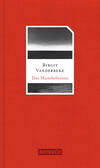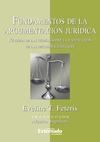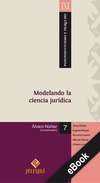Kitabı oku: «History of Tom Jones, a Foundling», sayfa 70
Chapter vii. – A pathetic scene between Mr Allworthy and Mrs Miller
Mrs Miller had a long discourse with Mr Allworthy, at his return from dinner, in which she acquainted him with Jones’s having unfortunately lost all which he was pleased to bestow on him at their separation; and with the distresses to which that loss had subjected him; of all which she had received a full account from the faithful retailer Partridge. She then explained the obligations she had to Jones; not that she was entirely explicit with regard to her daughter; for though she had the utmost confidence in Mr Allworthy, and though there could be no hopes of keeping an affair secret which was unhappily known to more than half a dozen, yet she could not prevail with herself to mention those circumstances which reflected most on the chastity of poor Nancy, but smothered that part of her evidence as cautiously as if she had been before a judge, and the girl was now on her trial for the murder of a bastard.
Allworthy said, there were few characters so absolutely vicious as not to have the least mixture of good in them. “However,” says he, “I cannot deny but that you have some obligations to the fellow, bad as he is, and I shall therefore excuse what hath past already, but must insist you never mention his name to me more; for, I promise you, it was upon the fullest and plainest evidence that I resolved to take the measures I have taken.” “Well, sir,” says she, “I make not the least doubt but time will shew all matters in their true and natural colours, and that you will be convinced this poor young man deserves better of you than some other folks that shall be nameless.”
“Madam,” cries Allworthy, a little ruffled, “I will not hear any reflections on my nephew; and if ever you say a word more of that kind, I will depart from your house that instant. He is the worthiest and best of men; and I once more repeat it to you, he hath carried his friendship to this man to a blameable length, by too long concealing facts of the blackest die. The ingratitude of the wretch to this good young man is what I most resent; for, madam, I have the greatest reason to imagine he had laid a plot to supplant my nephew in my favour, and to have disinherited him.”
“I am sure, sir,” answered Mrs Miller, a little frightened (for, though Mr Allworthy had the utmost sweetness and benevolence in his smiles, he had great terror in his frowns), “I shall never speak against any gentleman you are pleased to think well of. I am sure, sir, such behaviour would very little become me, especially when the gentleman is your nearest relation; but, sir, you must not be angry with me, you must not indeed, for my good wishes to this poor wretch. Sure I may call him so now, though once you would have been angry with me if I had spoke of him with the least disrespect. How often have I heard you call him your son? How often have you prattled to me of him with all the fondness of a parent? Nay, sir, I cannot forget the many tender expressions, the many good things you have told me of his beauty, and his parts, and his virtues; of his good-nature and generosity. I am sure, sir, I cannot forget them, for I find them all true. I have experienced them in my own cause. They have preserved my family. You must pardon my tears, sir, indeed you must. When I consider the cruel reverse of fortune which this poor youth, to whom I am so much obliged, hath suffered; when I consider the loss of your favour, which I know he valued more than his life, I must, I must lament him. If you had a dagger in your hand, ready to plunge into my heart, I must lament the misery of one whom you have loved, and I shall ever love.”
Allworthy was pretty much moved with this speech, but it seemed not to be with anger; for, after a short silence, taking Mrs Miller by the hand, he said very affectionately to her, “Come, madam, let us consider a little about your daughter. I cannot blame you for rejoicing in a match which promises to be advantageous to her, but you know this advantage, in a great measure, depends on the father’s reconciliation. I know Mr Nightingale very well, and have formerly had concerns with him; I will make him a visit, and endeavour to serve you in this matter. I believe he is a worldly man; but as this is an only son, and the thing is now irretrievable, perhaps he may in time be brought to reason. I promise you I will do all I can for you.”
Many were the acknowledgments which the poor woman made to Allworthy for this kind and generous offer, nor could she refrain from taking this occasion again to express her gratitude towards Jones, “to whom,” said she, “I owe the opportunity of giving you, sir, this present trouble.” Allworthy gently stopped her; but he was too good a man to be really offended with the effects of so noble a principle as now actuated Mrs Miller; and indeed, had not this new affair inflamed his former anger against Jones, it is possible he might have been a little softened towards him, by the report of an action which malice itself could not have derived from an evil motive.
Mr Allworthy and Mrs Miller had been above an hour together, when their conversation was put an end to by the arrival of Blifil and another person, which other person was no less than Mr Dowling, the attorney, who was now become a great favourite with Mr Blifil, and whom Mr Allworthy, at the desire of his nephew, had made his steward; and had likewise recommended him to Mr Western, from whom the attorney received a promise of being promoted to the same office upon the first vacancy; and, in the meantime, was employed in transacting some affairs which the squire then had in London in relation to a mortgage.
This was the principal affair which then brought Mr Dowling to town; therefore he took the same opportunity to charge himself with some money for Mr Allworthy, and to make a report to him of some other business; in all which, as it was of much too dull a nature to find any place in this history, we will leave the uncle, nephew, and their lawyer concerned, and resort to other matters.
Chapter viii. – Containing various matters
Before we return to Mr Jones, we will take one more view of Sophia.
Though that young lady had brought her aunt into great good humour by those soothing methods which we have before related, she had not brought her in the least to abate of her zeal for the match with Lord Fellamar. This zeal was now inflamed by Lady Bellaston, who had told her the preceding evening, that she was well satisfied from the conduct of Sophia, and from her carriage to his lordship, that all delays would be dangerous, and that the only way to succeed was to press the match forward with such rapidity that the young lady should have no time to reflect, and be obliged to consent while she scarce knew what she did; in which manner, she said, one-half of the marriages among people of condition were brought about. A fact very probably true, and to which, I suppose, is owing the mutual tenderness which afterwards exists among so many happy couples.
A hint of the same kind was given by the same lady to Lord Fellamar; and both these so readily embraced the advice that the very next day was, at his lordship’s request, appointed by Mrs Western for a private interview between the young parties. This was communicated to Sophia by her aunt, and insisted upon in such high terms, that, after having urged everything she possibly could invent against it without the least effect, she at last agreed to give the highest instance of complacence which any young lady can give, and consented to see his lordship.
As conversations of this kind afford no great entertainment, we shall be excused from reciting the whole that past at this interview; in which, after his lordship had made many declarations of the most pure and ardent passion to the silent blushing Sophia, she at last collected all the spirits she could raise, and with a trembling low voice said, “My lord, you must be yourself conscious whether your former behaviour to me hath been consistent with the professions you now make.” “Is there,” answered he, “no way by which I can atone for madness? what I did I am afraid must have too plainly convinced you, that the violence of love had deprived me of my senses.” “Indeed, my lord,” said she, “it is in your power to give me a proof of an affection which I much rather wish to encourage, and to which I should think myself more beholden.” “Name it, madam,” said my lord, very warmly. “My lord,” says she, looking down upon her fan, “I know you must be sensible how uneasy this pretended passion of yours hath made me.” “Can you be so cruel to call it pretended?” says he. “Yes, my lord,” answered Sophia, “all professions of love to those whom we persecute are most insulting pretences. This pursuit of yours is to me a most cruel persecution: nay, it is taking a most ungenerous advantage of my unhappy situation.” “Most lovely, most adorable charmer, do not accuse me,” cries he, “of taking an ungenerous advantage, while I have no thoughts but what are directed to your honour and interest, and while I have no view, no hope, no ambition, but to throw myself, honour, fortune, everything at your feet.” “My lord,” says she, “it is that fortune and those honours which gave you the advantage of which I complain. These are the charms which have seduced my relations, but to me they are things indifferent. If your lordship will merit my gratitude, there is but one way.” “Pardon me, divine creature,” said he, “there can be none. All I can do for you is so much your due, and will give me so much pleasure, that there is no room for your gratitude.” “Indeed, my lord,” answered she, “you may obtain my gratitude, my good opinion, every kind thought and wish which it is in my power to bestow; nay, you may obtain them with ease, for sure to a generous mind it must be easy to grant my request. Let me beseech you, then, to cease a pursuit in which you can never have any success. For your own sake as well as mine I entreat this favour; for sure you are too noble to have any pleasure in tormenting an unhappy creature. What can your lordship propose but uneasiness to yourself, by a perseverance, which, upon my honour, upon my soul, cannot, shall not prevail with me, whatever distresses you may drive me to.” Here my lord fetched a deep sigh, and then said – “Is it then, madam, that I am so unhappy to be the object of your dislike and scorn; or will you pardon me if I suspect there is some other?” Here he hesitated, and Sophia answered with some spirit, “My lord, I shall not be accountable to you for the reasons of my conduct. I am obliged to your lordship for the generous offer you have made; I own it is beyond either my deserts or expectations; yet I hope, my lord, you will not insist on my reasons, when I declare I cannot accept it.” Lord Fellamar returned much to this, which we do not perfectly understand, and perhaps it could not all be strictly reconciled either to sense or grammar; but he concluded his ranting speech with saying, “That if she had pre-engaged herself to any gentleman, however unhappy it would make him, he should think himself bound in honour to desist.” Perhaps my lord laid too much emphasis on the word gentleman; for we cannot else well account for the indignation with which he inspired Sophia, who, in her answer, seemed greatly to resent some affront he had given her.
While she was speaking, with her voice more raised than usual, Mrs Western came into the room, the fire glaring in her cheeks, and the flames bursting from her eyes. “I am ashamed,” says she, “my lord, of the reception which you have met with. I assure your lordship we are all sensible of the honour done us; and I must tell you, Miss Western, the family expect a different behaviour from you.” Here my lord interfered on behalf of the young lady, but to no purpose; the aunt proceeded till Sophia pulled out her handkerchief, threw herself into a chair, and burst into a violent fit of tears.
The remainder of the conversation between Mrs Western and his lordship, till the latter withdrew, consisted of bitter lamentations on his side, and on hers of the strongest assurances that her niece should and would consent to all he wished. “Indeed, my lord,” says she, “the girl hath had a foolish education, neither adapted to her fortune nor her family. Her father, I am sorry to say it, is to blame for everything. The girl hath silly country notions of bashfulness. Nothing else, my lord, upon my honour; I am convinced she hath a good understanding at the bottom, and will be brought to reason.”
This last speech was made in the absence of Sophia; for she had some time before left the room, with more appearance of passion than she had ever shown on any occasion; and now his lordship, after many expressions of thanks to Mrs Western, many ardent professions of passion which nothing could conquer, and many assurances of perseverance, which Mrs Western highly encouraged, took his leave for this time.
Before we relate what now passed between Mrs Western and Sophia, it may be proper to mention an unfortunate accident which had happened, and which had occasioned the return of Mrs Western with so much fury, as we have seen.
The reader then must know that the maid who at present attended on Sophia was recommended by Lady Bellaston, with whom she had lived for some time in the capacity of a comb-brush: she was a very sensible girl, and had received the strictest instructions to watch her young lady very carefully. These instructions, we are sorry to say, were communicated to her by Mrs Honour, into whose favour Lady Bellaston had now so ingratiated herself, that the violent affection which the good waiting-woman had formerly borne to Sophia was entirely obliterated by that great attachment which she had to her new mistress.
Now, when Mrs Miller was departed, Betty (for that was the name of the girl), returning to her young lady, found her very attentively engaged in reading a long letter, and the visible emotions which she betrayed on that occasion might have well accounted for some suspicions which the girl entertained; but indeed they had yet a stronger foundation, for she had overheard the whole scene which passed between Sophia and Mrs Miller.
Mrs Western was acquainted with all this matter by Betty, who, after receiving many commendations and some rewards for her fidelity, was ordered, that, if the woman who brought the letter came again, she should introduce her to Mrs Western herself.
Unluckily, Mrs Miller returned at the very time when Sophia was engaged with his lordship. Betty, according to order, sent her directly to the aunt; who, being mistress of so many circumstances relating to what had past the day before, easily imposed upon the poor woman to believe that Sophia had communicated the whole affair; and so pumped everything out of her which she knew relating to the letter and relating to Jones.
This poor creature might, indeed, be called simplicity itself. She was one of that order of mortals who are apt to believe everything which is said to them; to whom nature hath neither indulged the offensive nor defensive weapons of deceit, and who are consequently liable to be imposed upon by any one who will only be at the expense of a little falshood for that purpose. Mrs Western, having drained Mrs Miller of all she knew, which, indeed, was but little, but which was sufficient to make the aunt suspect a great deal, dismissed her with assurances that Sophia would not see her, that she would send no answer to the letter, nor ever receive another; nor did she suffer her to depart without a handsome lecture on the merits of an office to which she could afford no better name than that of procuress. – This discovery had greatly discomposed her temper, when, coming into the apartment next to that in which the lovers were, she overheard Sophia very warmly protesting against his lordship’s addresses. At which the rage already kindled burst forth, and she rushed in upon her niece in a most furious manner, as we have already described, together with what past at that time till his lordship’s departure.
No sooner was Lord Fellamar gone than Mrs Western returned to Sophia, whom she upbraided in the most bitter terms for the ill use she had made of the confidence reposed in her; and for her treachery in conversing with a man with whom she had offered but the day before to bind herself in the most solemn oath never more to have any conversation. Sophia protested she had maintained no such conversation. “How, how! Miss Western,” said the aunt; “will you deny your receiving a letter from him yesterday?” “A letter, madam!” answered Sophia, somewhat surprized. “It is not very well bred, miss,” replies the aunt, “to repeat my words. I say a letter, and I insist upon your showing it me immediately.” “I scorn a lie, madam,” said Sophia; “I did receive a letter, but it was without my desire, and, indeed, I may say, against my consent.” “Indeed, indeed, miss,” cries the aunt, “you ought to be ashamed of owning you had received it at all; but where is the letter? for I will see it.”
To this peremptory demand, Sophia paused some time before she returned an answer; and at last only excused herself by declaring she had not the letter in her pocket, which was, indeed, true; upon which her aunt, losing all manner of patience, asked her niece this short question, whether she would resolve to marry Lord Fellamar, or no? to which she received the strongest negative. Mrs Western then replied with an oath, or something very like one, that she would early the next morning deliver her back into her father’s hand.
Sophia then began to reason with her aunt in the following manner: – “Why, madam, must I of necessity be forced to marry at all? Consider how cruel you would have thought it in your own case, and how much kinder your parents were in leaving you to your liberty. What have I done to forfeit this liberty? I will never marry contrary to my father’s consent, nor without asking yours – And when I ask the consent of either improperly, it will be then time enough to force some other marriage upon me.” “Can I bear to hear this,” cries Mrs Western, “from a girl who hath now a letter from a murderer in her pocket?” “I have no such letter, I promise you,” answered Sophia; “and, if he be a murderer, he will soon be in no condition to give you any further disturbance.” “How, Miss Western!” said the aunt, “have you the assurance to speak of him in this manner; to own your affection for such a villain to my face?” “Sure, madam,” said Sophia, “you put a very strange construction on my words.” “Indeed, Miss Western,” cries the lady, “I shall not bear this usage; you have learnt of your father this manner of treating me; he hath taught you to give me the lie. He hath totally ruined you by this false system of education; and, please heaven, he shall have the comfort of its fruits; for once more I declare to you, that to-morrow morning I will carry you back. I will withdraw all my forces from the field, and remain henceforth, like the wise king of Prussia, in a state of perfect neutrality. You are both too wise to be regulated by my measures; so prepare yourself, for to-morrow morning you shall evacuate this house.”
Sophia remonstrated all she could; but her aunt was deaf to all she said. In this resolution therefore we must at present leave her, as there seems to be no hopes of bringing her to change it.
Chapter ix. – What happened to Mr Jones in the prison
Mr Jones passed about twenty-four melancholy hours by himself, unless when relieved by the company of Partridge, before Mr Nightingale returned; not that this worthy young man had deserted or forgot his friend; for, indeed, he had been much the greatest part of the time employed in his service.
He had heard, upon enquiry, that the only persons who had seen the beginning of the unfortunate rencounter were a crew belonging to a man-of-war which then lay at Deptford. To Deptford therefore he went in search of this crew, where he was informed that the men he sought after were all gone ashore. He then traced them from place to place, till at last he found two of them drinking together, with a third person, at a hedge-tavern near Aldersgate.
Nightingale desired to speak with Jones by himself (for Partridge was in the room when he came in). As soon as they were alone, Nightingale, taking Jones by the hand, cried, “Come, my brave friend, be not too much dejected at what I am going to tell you – I am sorry I am the messenger of bad news; but I think it my duty to tell you.” “I guess already what that bad news is,” cries Jones. “The poor gentleman then is dead.” – “I hope not,” answered Nightingale. “He was alive this morning; though I will not flatter you; I fear, from the accounts I could get, that his wound is mortal. But if the affair be exactly as you told it, your own remorse would be all you would have reason to apprehend, let what would happen; but forgive me, my dear Tom, if I entreat you to make the worst of your story to your friends. If you disguise anything to us, you will only be an enemy to yourself.”
“What reason, my dear Jack, have I ever given you,” said Jones, “to stab me with so cruel a suspicion?” “Have patience,” cries Nightingale, “and I will tell you all. After the most diligent enquiry I could make, I at last met with two of the fellows who were present at this unhappy accident, and I am sorry to say, they do not relate the story so much in your favour as you yourself have told it.” “Why, what do they say?” cries Jones. “Indeed what I am sorry to repeat, as I am afraid of the consequence of it to you. They say that they were at too great a distance to overhear any words that passed between you: but they both agree that the first blow was given by you.” “Then, upon my soul,” answered Jones, “they injure me. He not only struck me first, but struck me without the least provocation. What should induce those villains to accuse me falsely?” “Nay, that I cannot guess,” said Nightingale, “and if you yourself, and I, who am so heartily your friend, cannot conceive a reason why they should belie you, what reason will an indifferent court of justice be able to assign why they should not believe them? I repeated the question to them several times, and so did another gentleman who was present, who, I believe, is a seafaring man, and who really acted a very friendly part by you; for he begged them often to consider that there was the life of a man in the case; and asked them over and over, if they were certain; to which they both answered, that they were, and would abide by their evidence upon oath. For heaven’s sake, my dear friend, recollect yourself; for, if this should appear to be the fact, it will be your business to think in time of making the best of your interest. I would not shock you; but you know, I believe, the severity of the law, whatever verbal provocations may have been given you.” “Alas! my friend,” cries Jones, “what interest hath such a wretch as I? Besides, do you think I would even wish to live with the reputation of a murderer? If I had any friends (as, alas! I have none), could I have the confidence to solicit them to speak in the behalf of a man condemned for the blackest crime in human nature? Believe me, I have no such hope; but I have some reliance on a throne still greatly superior; which will, I am certain, afford me all the protection I merit.”
He then concluded with many solemn and vehement protestations of the truth of what he had at first asserted.
The faith of Nightingale was now again staggered, and began to incline to credit his friend, when Mrs Miller appeared, and made a sorrowful report of the success of her embassy; which when Jones had heard, he cried out most heroically, “Well, my friend, I am now indifferent as to what shall happen, at least with regard to my life; and if it be the will of Heaven that I shall make an atonement with that for the blood I have spilt, I hope the Divine Goodness will one day suffer my honour to be cleared, and that the words of a dying man, at least, will be believed, so far as to justify his character.”
A very mournful scene now past between the prisoner and his friends, at which, as few readers would have been pleased to be present, so few, I believe, will desire to hear it particularly related. We will, therefore, pass on to the entrance of the turnkey, who acquainted Jones that there was a lady without who desired to speak with him when he was at leisure.
Jones declared his surprize at this message. He said, “He knew no lady in the world whom he could possibly expect to see there.” However, as he saw no reason to decline seeing any person, Mrs Miller and Mr Nightingale presently took their leave, and he gave orders to have the lady admitted.
If Jones was surprized at the news of a visit from a lady, how greatly was he astonished when he discovered this lady to be no other than Mrs Waters! In this astonishment then we shall leave him awhile, in order to cure the surprize of the reader, who will likewise, probably, not a little wonder at the arrival of this lady.
Who this Mrs Waters was, the reader pretty well knows; what she was, he must be perfectly satisfied. He will therefore be pleased to remember that this lady departed from Upton in the same coach with Mr Fitzpatrick and the other Irish gentleman, and in their company travelled to Bath.
Now there was a certain office in the gift of Mr Fitzpatrick at that time vacant, namely that of a wife: for the lady who had lately filled that office had resigned, or at least deserted her duty. Mr Fitzpatrick therefore, having thoroughly examined Mrs Waters on the road, found her extremely fit for the place, which, on their arrival at Bath, he presently conferred upon her, and she without any scruple accepted. As husband and wife this gentleman and lady continued together all the time they stayed at Bath, and as husband and wife they arrived together in town.
Whether Mr Fitzpatrick was so wise a man as not to part with one good thing till he had secured another, which he had at present only a prospect of regaining; or whether Mrs Waters had so well discharged her office, that he intended still to retain her as principal, and to make his wife (as is often the case) only her deputy, I will not say; but certain it is, he never mentioned his wife to her, never communicated to her the letter given him by Mrs Western, nor ever once hinted his purpose of repossessing his wife; much less did he ever mention the name of Jones. For, though he intended to fight with him wherever he met him, he did not imitate those prudent persons who think a wife, a mother, a sister, or sometimes a whole family, the safest seconds on these occasions. The first account therefore which she had of all this was delivered to her from his lips, after he was brought home from the tavern where his wound had been drest.
As Mr Fitzpatrick, however, had not the clearest way of telling a story at any time, and was now, perhaps, a little more confused than usual, it was some time before she discovered that the gentleman who had given him this wound was the very same person from whom her heart had received a wound, which, though not of a mortal kind, was yet so deep that it had left a considerable scar behind it. But no sooner was she acquainted that Mr Jones himself was the man who had been committed to the Gatehouse for this supposed murder, than she took the first opportunity of committing Mr Fitzpatrick to the care of his nurse, and hastened away to visit the conqueror.
She now entered the room with an air of gaiety, which received an immediate check from the melancholy aspect of poor Jones, who started and blessed himself when he saw her. Upon which she said, “Nay, I do not wonder at your surprize; I believe you did not expect to see me; for few gentlemen are troubled here with visits from any lady, unless a wife. You see the power you have over me, Mr Jones. Indeed, I little thought, when we parted at Upton, that our next meeting would have been in such a place.” “Indeed, madam,” says Jones, “I must look upon this visit as kind; few will follow the miserable, especially to such dismal habitations.” “I protest, Mr Jones,” says she, “I can hardly persuade myself you are the same agreeable fellow I saw at Upton. Why, your face is more miserable than any dungeon in the universe. What can be the matter with you?” “I thought, madam,” said Jones, “as you knew of my being here, you knew the unhappy reason.” “Pugh!” says she, “you have pinked a man in a duel, that’s all.” Jones exprest some indignation at this levity, and spoke with the utmost contrition for what had happened. To which she answered, “Well, then, sir, if you take it so much to heart, I will relieve you; the gentleman is not dead, and, I am pretty confident, is in no danger of dying. The surgeon, indeed, who first dressed him was a young fellow, and seemed desirous of representing his case to be as bad as possible, that he might have the more honour from curing him: but the king’s surgeon hath seen him since, and says, unless from a fever, of which there are at present no symptoms, he apprehends not the least danger of life.” Jones shewed great satisfaction in his countenance at this report; upon which she affirmed the truth of it, adding, “By the most extraordinary accident in the world I lodge at the same house; and have seen the gentleman, and I promise you he doth you justice, and says, whatever be the consequence, that he was entirely the aggressor, and that you was not in the least to blame.”
Jones expressed the utmost satisfaction at the account which Mrs Waters brought him. He then informed her of many things which she well knew before, as who Mr Fitzpatrick was, the occasion of his resentment, &c. He likewise told her several facts of which she was ignorant, as the adventure of the muff, and other particulars, concealing only the name of Sophia. He then lamented the follies and vices of which he had been guilty; every one of which, he said, had been attended with such ill consequences, that he should be unpardonable if he did not take warning, and quit those vicious courses for the future. He lastly concluded with assuring her of his resolution to sin no more, lest a worse thing should happen to him.



















